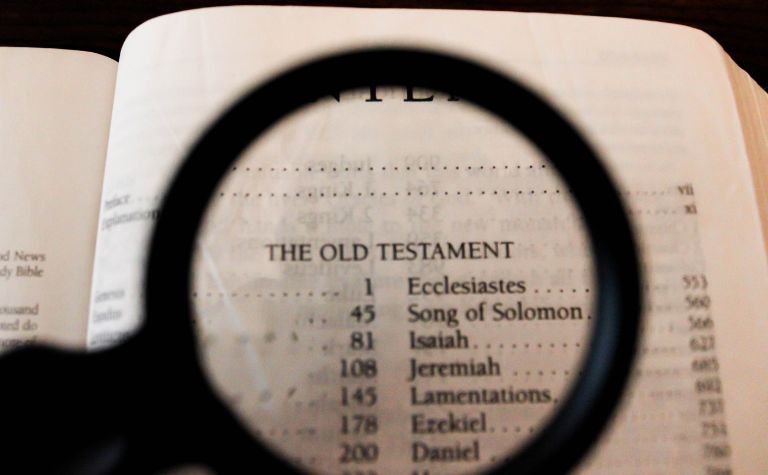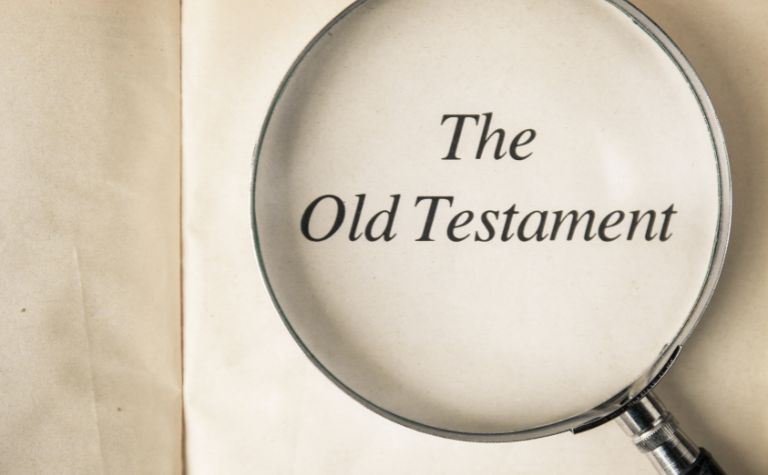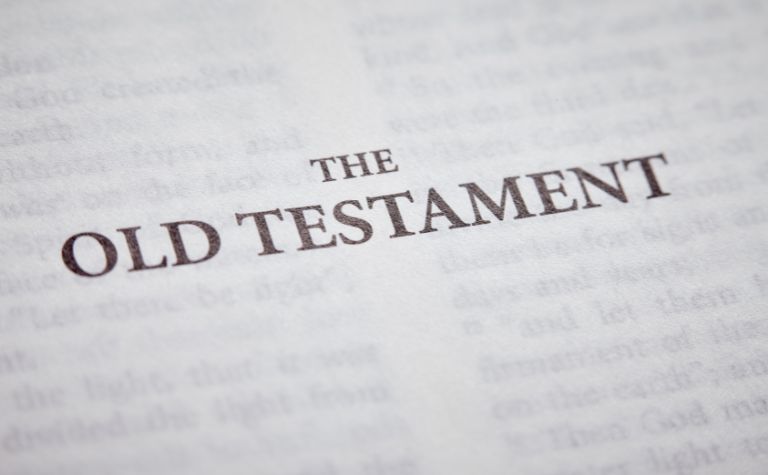The Old Testament, also known as the Hebrew Bible, comprises the first two-thirds of the Christian Bible. It’s called the “Old” Testament because Jesus Christ fulfilled it and established a new covenant or testament when he died on the cross and rose from the dead. One question many people have about the Old Testament regards the books included in it.
Regarding the total amount of books in the Old Testament, the number 46 includes the writings of the Hebrew Bible and the Apocrypha or Deuterocanonical literature. So, the Roman Catholic Church would say that the Old Testament has 46 books, but Protestants would say there are 39.
What writings make up the collection of 39 books? What are the four categories of literature found in the collection? What is their subject matter? What is the Apocrypha or Deuterocanon? Why do the Roman Catholic and Eastern Orthodox Churches accept it and Protestants don’t? Keep reading to learn the answers to these questions and others.
Also, see How Many Chapters Are in the New Testament? to learn more.

What Books Comprise the Old Testament?
The Old Testament comprises the books of Moses, the books of history, the books of wisdom, and the books of the prophets.
The Books of Moses
The Pentateuch, which is also called the Law or Torah, comprises the first five books of the Old Testament. Moses is the primary author of these books, according to the Bible (e.g., Luke 24:7). Genesis is known as the book of origins because it describes the creation of the world (Ch. 1-2), the inception of sin (Ch. 3), and the origin of the Israelites (Ch. 12-50).
The books of Exodus, Leviticus, Numbers, and Deuteronomy take place during the life of Moses. At the beginning of Exodus, the Israelites are slaves in Egypt. Yet, at the end of Deuteronomy, they have been free for 40 years and are on the brink of entering the land God promised to their forefather, Abraham (Gen. 12:1-3).
| Pentateuch |
|---|
| Genesis |
| Exodus |
| Leviticus |
| Numbers |
| Deuteronomy |
The Books of History
The “History Books” section in the Old Testament is so-named because they have the characteristics of the genre or writing style of historical record-keeping. However, the name doesn’t suggest that other Old Testament books aren’t historical in their precision.
These books cover centuries of Israelite history, including Israel’s entry into the Promised Land, the time when judges ruled the nation, and the rise of the monarchy.
They also describe the sad demise of the nation as the kingdom splits into two, north and south, and foreign enemies eventually take each one into exile for almost two generations.
| History Books |
|---|
| Joshua |
| Judges |
| Ruth |
| 1 Samuel |
| 2 Samuel |
| 1 Kings |
| 2 Kings |
| 1 Chronicles |
| 2 Chronicles |
| Ezra |
| Nehemiah |
| Esther |
The Books of Wisdom
The Wisdom Literature in the Old Testament contains five books, each containing poetic literature. They are grouped in the Old Testament because of their common writing style.
However, some date to the time of Abraham (e.g., Job); others to the time of Moses (e.g., Psalm 90); and yet others to the time of the monarchy (e.g., the Psalms of David and most of Proverbs, Ecclesiastes, and Song of Solomon).
| Wisdom Literature |
|---|
| Job |
| Psalms |
| Proverbs |
| Ecclesiastes |
| Song of Solomon |
Also, see What is the New Testament? to learn more.

The Books of the Prophets
The last 17 books of the Old Testament consist of prophetic literature. They are traditionally divided into two sections, major, which has five books, and minor, which has 12. The labels “major” and “minor” don’t refer to the importance of each book’s content but only their size.
| Major Prophets |
|---|
| Isaiah |
| Jeremiah |
| Lamentations |
| Ezekiel |
| Daniel |
God had called people to serve him as a prophet since the time of Abraham. But when corruption grew in the monarchy, his use of prophets increased as he called them to deliver messages and warnings to the wayward kings in Israel.
Prophets wrote before, during, and after the kingdom split, and Israel’s enemies exiled them. Those that wrote before warned people of the imminent consequences of their actions if they didn’t repent. Those who wrote during and after the exile encouraged people to obey the Law and remember God’s faithful promises.
| Minor Prophets |
|---|
| Hosea |
| Joel |
| Amos |
| Obadiah |
| Jonah |
| Micah |
| Nahum |
| Habakkuk |
| Zephaniah |
| Haggai |
| Zechariah |
| Malachi |
Also, see What is the Last Book of the Old Testament? to learn more.

What Is the Apocrypha?
There are approximately 400 years between the last book of the Old Testament (Malachi) and the first book of the New Testament (Matthew).
Although God didn’t inspire writers (cf. 2 Tim. 3:16-17) during this time, people still wrote, recording the history of the Jewish people. Some of these writings still exist, leaving some Jews and Christians to debate their theological importance.
Apocrypha: The word “apocrypha” literally means “things that are hidden,” but some people use it to convey unorthodox or fictitious information. In this sense, the word “apocrypha” is controversial when the connotation is that the books in question don’t have value.
Deuterocanonical: The word “deuterocanonical” literally means “secondary canon.” Canon, in this context, refers to an officially accepted collection of books. “Deutero” conveys that certain books do not have the same inspired status as others books of the Bible.
Are there seven or 13 books?
The books that comprise the Apocrypha or Deuterocanonical books can be counted in two different ways. Some say there are 13 books, while others say there are seven. These numbers reflect different ways to count the same body of literature.
Some of the disputed writings are stand-alone books, like Tobit. Others are additional chapters to Old Testament books, like Esther and Daniel.
The number 46 refers to the 39 books of the Hebrew Bible or Christian Old Testament, plus the seven complete books of the Apocrypha.
| Apocrypha |
|---|
| Tobit |
| Judith |
| Wisdom of Solomon |
| Ecclesiasticus |
| Baruch |
| 1 Maccabees |
| 2 Maccabees |
Who accepts the Apocrypha?
The Roman Catholic and Eastern Orthodox Churches value the Apocrypha more than orthodox Jews and Protestant Christians. Some Jews and Protestants study the books in this collection for literary and historical purposes. However, they don’t establish doctrine and practices based on them.
The Roman Catholic Church accepted the collection as canonical (later referred to as deuterocanonical) at the Council of Trent in 1546. One focus of the council was rejecting Protestantism’s accusations, which led the members to embrace the Apocrypha.
The Reformers, like the German theologian Martin Luther, had previously removed the collection from the Bible, claiming their content was unbiblical.
Also, see What Language Was the Old Testament Written In? to learn more.
References:
[1] Holman Illustrated Bible Dictionary. p. 79.
[2] The Baker Concise Dictionary of Theological Terms. p. 22.
Related Questions
Over 2,000 years ago, people who walked and talked with Jesus of Nazareth wrote the 27 books of the New Testament. The drive to preserve and spread Jesus' teachings and stories about him led the...
The New Testament is the most significant collection of writings in world history. Each gospel, letter, historical account, and sermon describe the life and ministry of Jesus of Nazareth and the...
